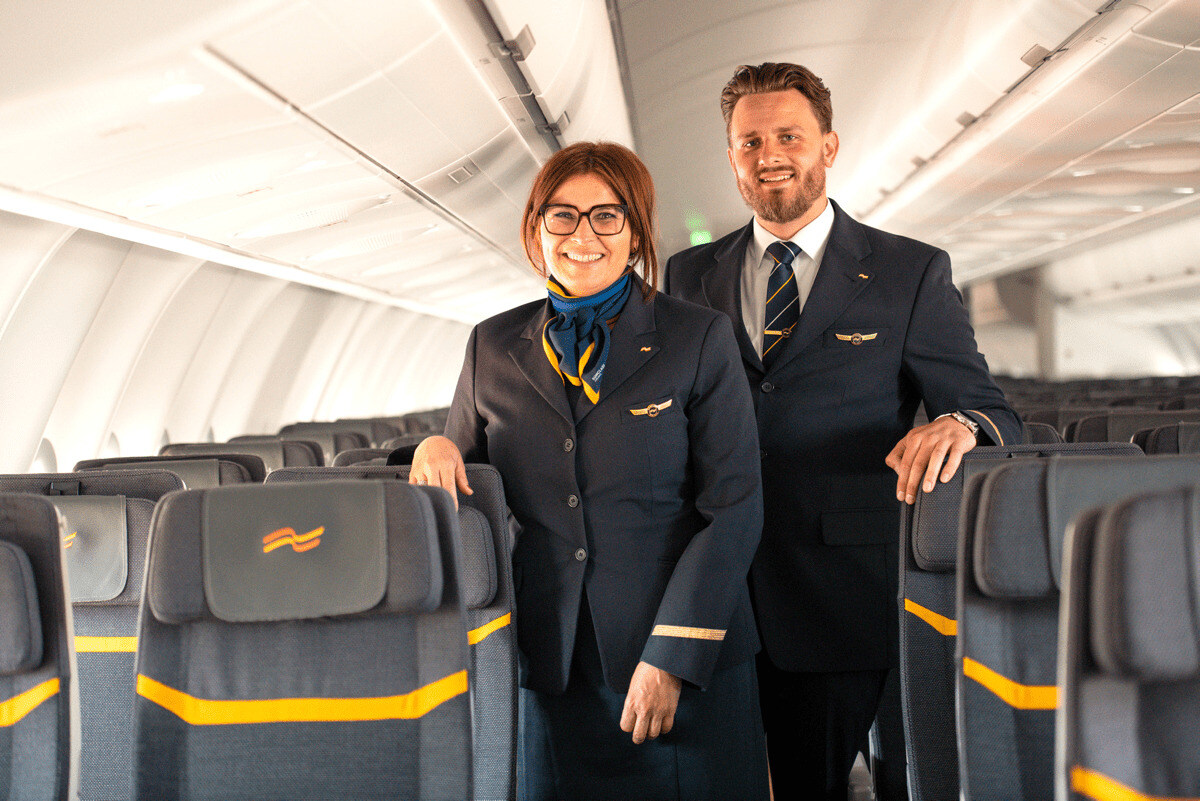
Ever wondered what makes an airline tick? Beyond pilots and flight attendants, airline human resources play a crucial role in keeping everything running smoothly. From hiring the best talent to ensuring compliance with aviation regulations, HR departments are the unsung heroes of the skies. They manage everything from employee benefits to conflict resolution, making sure every team member is ready for takeoff. Airline HR also handles training programs, safety protocols, and even crisis management. Curious about how they do it all? Buckle up as we dive into 16 fascinating facts about the world of airline human resources.
Key Takeaways:
- Airlines' HR departments play a vital role in recruiting, training, and supporting employees. They ensure the workforce is well-prepared, compliant, and cared for, contributing to safe and efficient airline operations.
- HR in airlines focuses on rigorous recruitment, thorough training, and employee well-being. They prioritize safety, customer service, and work-life balance, creating a positive and supportive environment for airline staff.
The Role of Human Resources in Airlines
Human Resources (HR) in airlines is a crucial department that ensures smooth operations by managing the workforce. From hiring pilots to training cabin crew, HR handles various responsibilities.
-
Recruitment: HR is responsible for recruiting pilots, flight attendants, ground staff, and other essential personnel. They ensure candidates meet strict qualifications and standards.
-
Training Programs: Airlines invest heavily in training programs for their staff. HR coordinates these programs to ensure employees are well-prepared for their roles.
-
Employee Relations: HR manages relationships between employees and the airline. They handle disputes, grievances, and ensure a positive work environment.
-
Compliance: HR ensures the airline complies with labor laws and aviation regulations. This includes maintaining proper certifications and adhering to safety standards.
Recruitment and Selection Process
The recruitment and selection process in airlines is rigorous due to the high stakes involved in aviation. HR plays a pivotal role in this process.
-
Background Checks: HR conducts thorough background checks on potential employees. This includes criminal records, employment history, and educational qualifications.
-
Psychological Testing: Many airlines require psychological testing for pilots and cabin crew to ensure they can handle the stress and responsibilities of their roles.
-
Interview Process: The interview process often includes multiple stages, such as initial screenings, technical interviews, and final assessments by senior management.
-
Onboarding: Once selected, new employees undergo an onboarding process where they learn about the airline's culture, policies, and procedures.
Training and Development
Training and development are essential in the airline industry to maintain high standards of safety and service. HR coordinates these efforts.
-
Safety Training: All airline staff undergo safety training to handle emergencies, including evacuations, medical emergencies, and security threats.
-
Customer Service Training: Cabin crew receive extensive training in customer service to ensure passengers have a pleasant experience.
-
Technical Training: Pilots and maintenance staff receive ongoing technical training to stay updated with the latest aviation technologies and procedures.
-
Leadership Development: HR also focuses on developing future leaders within the airline through specialized training programs.
Employee Well-being and Benefits
Employee well-being is a priority for airline HR departments. They implement various programs to ensure the health and satisfaction of their workforce.
-
Health Programs: Airlines offer health programs that include medical check-ups, fitness initiatives, and mental health support.
-
Travel Benefits: Employees often enjoy travel benefits, such as discounted or free flights, which serve as a significant perk.
-
Work-Life Balance: HR promotes work-life balance by offering flexible schedules, especially for roles that involve irregular hours, like pilots and cabin crew.
-
Recognition Programs: To boost morale, HR implements recognition programs that reward employees for exceptional performance and dedication.
The Final Word on Airline HR
Airline human resources play a crucial role in keeping the skies friendly and safe. From recruiting top-notch pilots to ensuring flight attendants are well-trained, HR departments are the backbone of the aviation industry. They handle everything from employee benefits to conflict resolution, making sure the workforce is happy and efficient.
HR professionals in airlines also focus on diversity and inclusion, aiming to create a welcoming environment for all employees. They work tirelessly to comply with aviation regulations and maintain safety standards.
Understanding these facts gives you a glimpse into the complexities and importance of HR in airlines. Next time you board a plane, remember the unseen heroes who make your journey smooth and enjoyable. The world of airline HR is fascinating, intricate, and essential for the industry's success.
Frequently Asked Questions
Was this page helpful?
Our commitment to delivering trustworthy and engaging content is at the heart of what we do. Each fact on our site is contributed by real users like you, bringing a wealth of diverse insights and information. To ensure the highest standards of accuracy and reliability, our dedicated editors meticulously review each submission. This process guarantees that the facts we share are not only fascinating but also credible. Trust in our commitment to quality and authenticity as you explore and learn with us.


